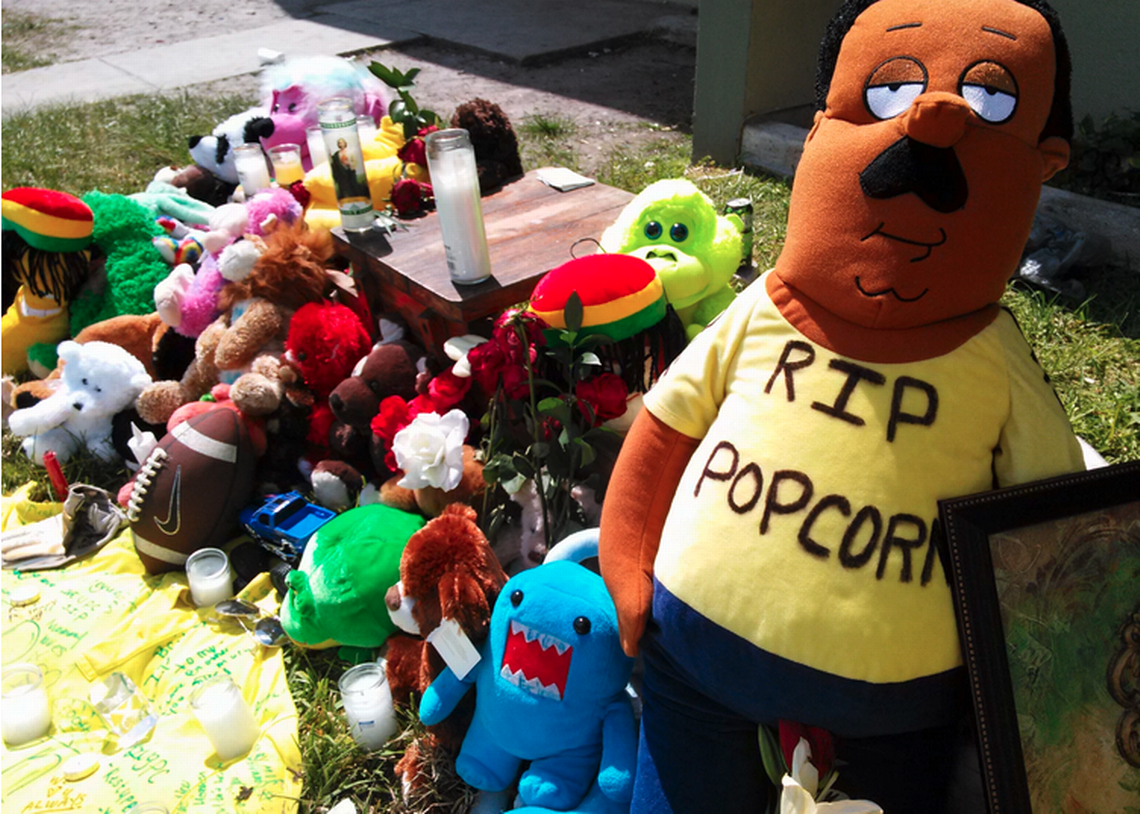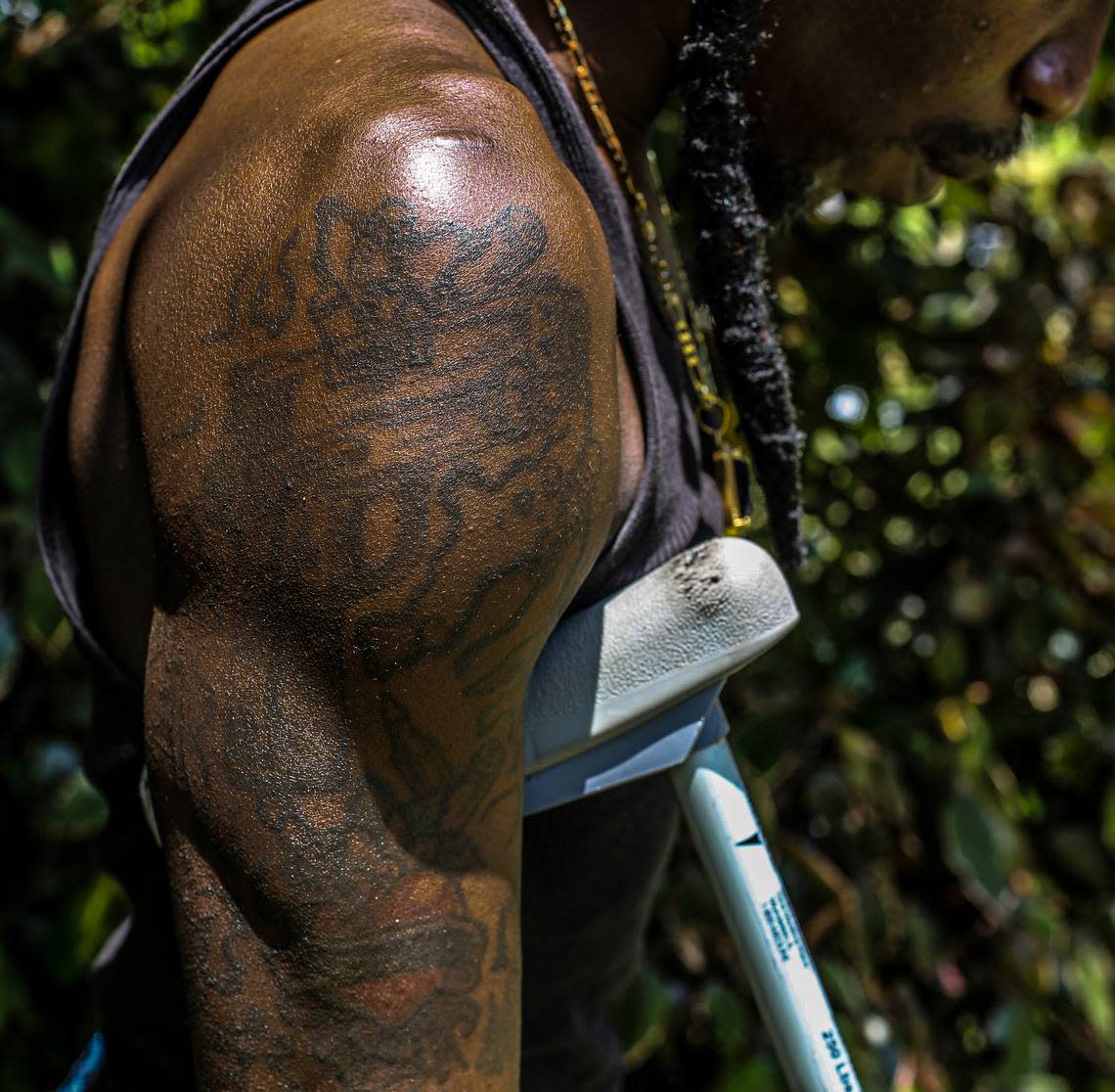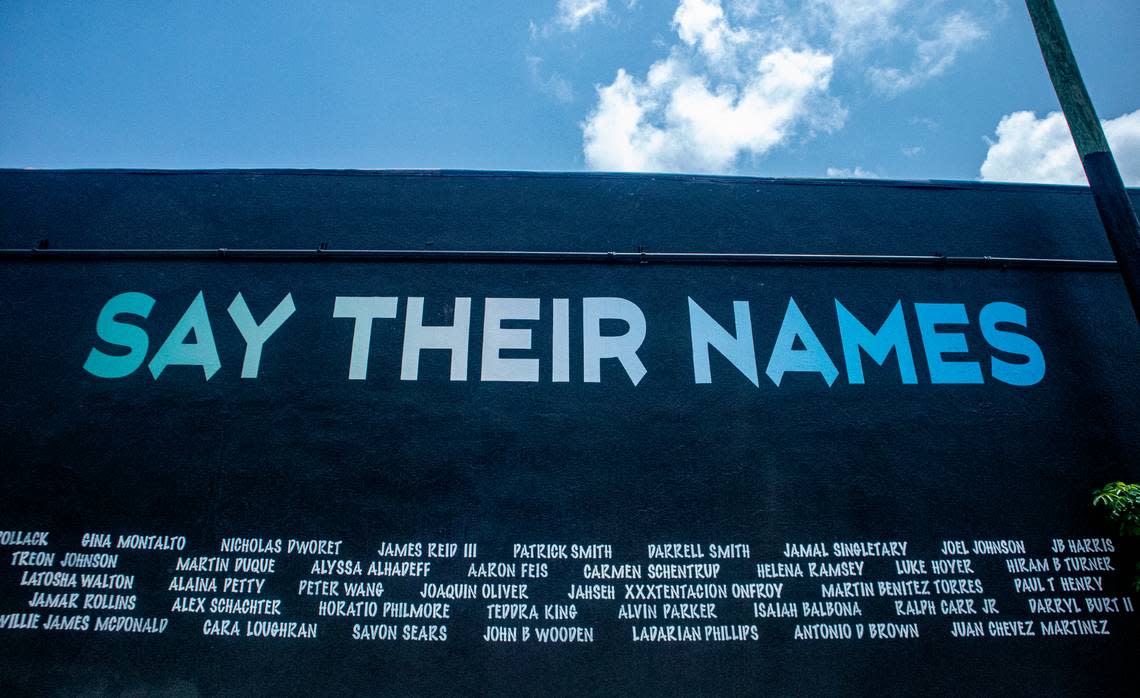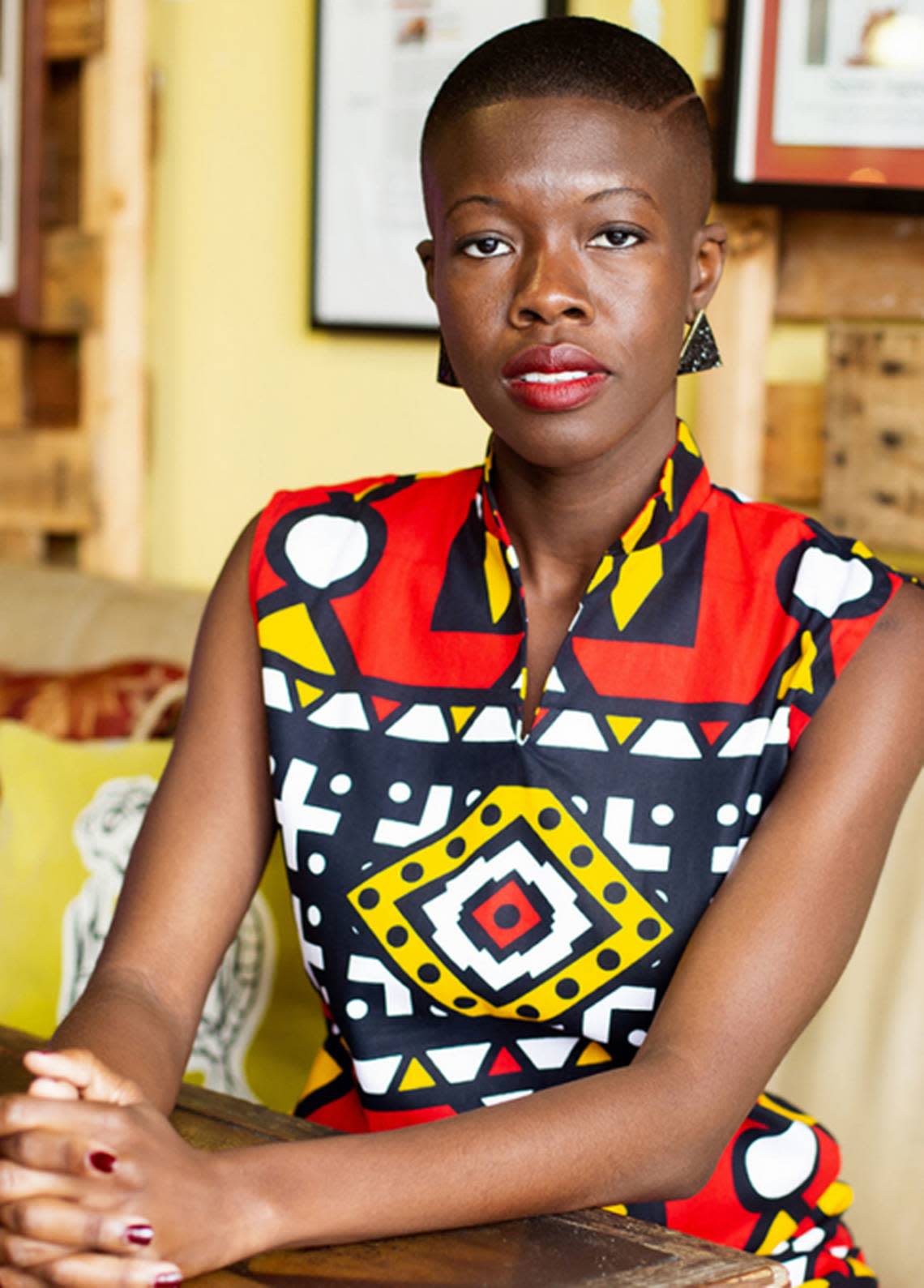Book of sorrow and survival shows the toll gun violence takes on the living | Opinion
The anthology “More Than What Happened: The Aftermath of Gun Violence in Miami” is a memorial in remembrance of children, teens and adults who were killed by gun violence in and around Miami-Dade. You will read their names in prose, poems, and essays submitted by loved ones who can now only hold on tightly to their memories.
This book bears witness to survival. What it means to survive being shot. What it means to survive a loved one taken from this world far too soon. What it means to survive a violent partner. What it means to survive in neighborhoods where shootings are far too common. What it means to survive at school and what it means to survive the police.
Published by O, Miami, this book is also about grief that “thoughts and prayers” don’t heal, or as one mom told me during an interview, “You never get over losing your child.”

When I was working as a full-time journalist in Miami, I found myself frustrated with how gun violence in our community was covered in the news. The stories about shootings were predictable and formulaic: Someone was shot. A few details are shared if any are known about the alleged shooter(s). Sometimes there’s a quote or two from a family member of the victim. And finally, the last line, a public-service message to call a police tip line if you have more information.
Lost in this blur of wash-rinse-repeat reporting of our neighbors who get shot or shot at, is their humanity — and ours. Who was this person? How does this shooting impact the community they come from or their family? What does it mean to live with the fear of gun violence, even if you weren’t shot, but it happened close to you?
When the crime-scene tape is long gone, when the code-red drill at school is over, after the police shoot yet another young Black man — what stories remain untold? Yes, of course there are the occasional stories that go deeper, but the formula is the norm with little to no follow up.
When I was a reporter with WLRN, South Florida’s NPR station, I insisted that stories about gun violence were more than police press releases. I went into the homes of families who lost children to gun violence to let them tell their stories in a way only a mother, a brother, a close loved one could. Those stories became an ongoing series called “In Their Own Words,” and some of those pieces are also included in this book.
You probably wouldn’t know it based on how the majority of news about local gun violence is presented, but the majority of gun violence victims in Miami-Dade survive their injuries. Yet, the voices of the survivors are rarely heard.
Megan Hobson was shot in a drive-by shooting in Miami Gardens when she was 16 years old, leaving her with memory loss, a physical disability and chronic pain.
“You survived a shooting, now what?” she asked me, not expecting a response. “Once you get to the ‘Now what?’ There’s no answer.”
Trauma, giant medical bills, feeling like a familial burden, a new normal and no support is part of the story she says most people don’t know when they hear about someone surviving a shooting. Her story is in this book, as well as the stories of other survivors like Desmond Hanks in Liberty City, who for years feared the bullet lodged near his heart could be displaced by a simple hug — so he avoided hugs for years after his shooting until doctors were finally able to remove that bullet safely.
The youngest contributors in “More Than What Happened: The Aftermath of Gun Violence in Miami” are in elementary school. Teen and adult voices from Overtown, Perrine, Miami Gardens, Liberty City, Kendall and Little Haiti are also represented. There are photo essays from local photographers, submissions from local poets and educators, too.
This book is the story of how people love each other; how communities heal and form support groups with little resources; and how school-age kids are impacted by gun violence.
Hear them.
Because
By Corinthia Green’s fourth-grade class,
Poinciana Park Elementary, 2016
(Full poem)
Because there was a gun my dad lost his life.
Because there was a gun, people died and it’s trouble in your heart.
It’s so hard to get through.
Because there was a gun, people want to shoot each other.
Because there was a gun, we cannot have a good life.
Because there was a gun, my cousin died.
Her name was Aniya.
She was three years old.
Because there was a gun people cry and cry.
So put the gun down.
Please
Little Haiti is Home
By Woosler Delisfort
The funerals were almost every week. It was too much. If you lost one homeboy, it’s almost guaranteed someone else he runs with is about to get killed the next week. We lost way too many people. We were young — 17, 18 and 19 years old. Just dying in the streets.

Still Got That Ringing in My Ear
By Arsimmer McCoy
(Excerpt)
A baby cries
during the prayer.
Breaking the thin layer,
between decorum and hysteria.
Mama collapses in her sisters’
arms.
The little ones look to the elders
for reassurance they won’t be next.
No one would ever lie to a black child like that.
This ain’t like Santa Claus or the tooth fairy
or equal opportunity.
Northwestern Students Walk Out
After a Classmate’s Death
Reported by Nadege Green
“It’s so many lives that are lost every day,” he said as he brushed away tears from his cheeks. He said the student body at Northwestern wanted to make sure they showed up for one of their own as they process losing yet another classmate. During Ricky’s freshman year, four students at the school were killed by gun violence. “We called a walkout . . . for the Parkland kids, I’m like, ‘What! We did a walkout?’ he said. “But my ninth-grade year kids died and we got a moment of silence.”
Ricky Pope, friend of Kimson Green
Another Mango Season
By Christel Victoria Roach
All the women
wear black like skin. They sit heavy as bed sheets,
wondering about fruit-picking, how leaves
changing once marked seasons, but now, leaves:
a metaphor for the wake.
Lil Man
By Daurius Daughtry
Lil Man caught fire round the corner from his house
Somebody had to see it but the street’s a tight-clenched mouth
Except for screaming sirens
And the weeping from his mother.
And the promise of revenge from his cousins and his brother.

Let Them be Kids
By Webber J. Charles
Bullet wounds have lifelong implications on people even when you think they survived.
My Father
By Carlos Frias
Wherever life moved our dad, he bloomed and bore fruit.
Everywhere he went, he had a limerick, a poem, a song to share.
My cousin Julio put it so beautifully
In the darkness, he was a ray of light.
Our dad learned that with enough care, enough love, and
enough vision, you could turn a weed into a flower.
Students Are Experts on Gun Violence
By Precious Symonette,
Miami Norland Senior High educator
I teach grades 9–12 at Miami Norland High School. I gave this assignment to write about gun violence to all my students because I think they can relate to it a lot. …
Whenever topics like this come up, I believe student voices should be at the forefront because they know what’s happening in their community. Everyone doesn’t know their community, their families. Miami Gardens has things that need to be worked on, but it has so much greatness and beauty because I see that in my students every day who are from Miami Gardens. …
What surprised me was their level of grit to get through this assignment. Many, if not all, of my students in the classes know someone who has been murdered or touched by gun violence.
The next three excerpts are from Symonette’s Norland High students
Will It Not End?
By Conroy Reid
Are we not tired?
From funeral to funeral
Wearing suits and dresses
Standing and crying in the rain
Losing our youth
Wrong place wrong time
We continue to say
Where is the right place and
When is the right time?
Will the youth of today ever get
The peaceful environment they deserved
I’m Not From The Miami You See
By Ta’niya Dixon
I am from police sirens
From ramen noodles and violence
I am from urban population
Funerals, court dates, barely graduations
I am from medical marijuana being sold for survival
l’M FROM URBAN MIAMI
I’m from cookouts and brown eyes
I’m from mami and papi
I’m from gossip and struggle
From I brought you in this world and I’ll take you out
I’m from Bibles and crosses, drug dealers and bosses
Gun Violence Affects Me
By Dean Frenelon
Gun violence? It groups me into a bubble where others’ sins and past mistakes are also mine, and I’m treated as if I did those acts of violence with my bare hands. It makes me feel like the entire world is above me, watching my every mood and waiting to tell me to put my hands up — or even waiting to take my life on the off chance I stroll through a neighborhood on a chilly night with my hoodie on.
On Nov. 19 at the Miami Book Fair, O, Miami and Editor/Community Historian Nadege Green, a former Miami Herald reporter, will release the new anthology, ”More than What Happened: The Aftermath of Gun Violence in Miami.” The book is available at omiami.org/shop/books.

